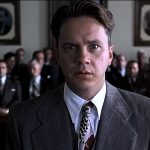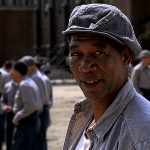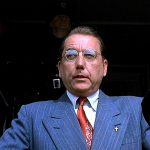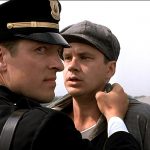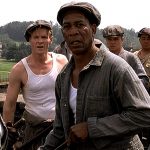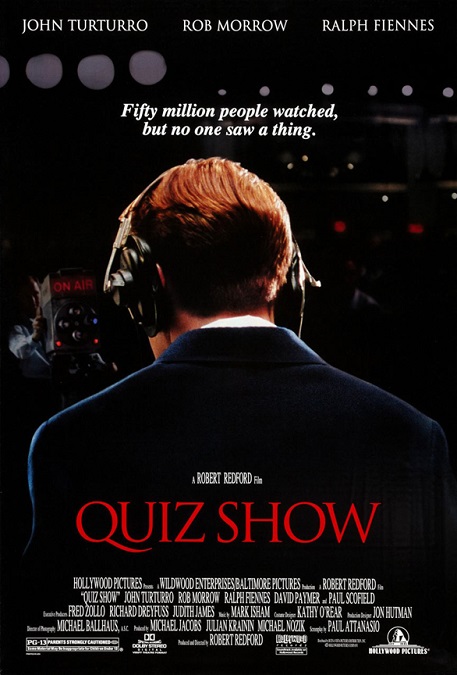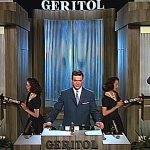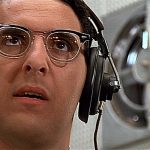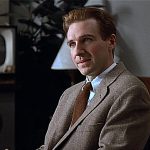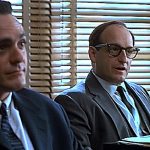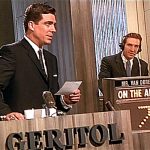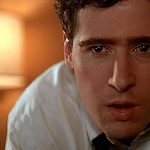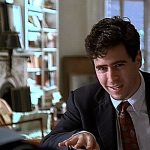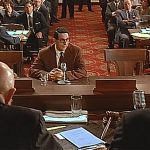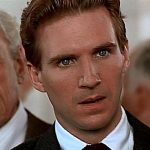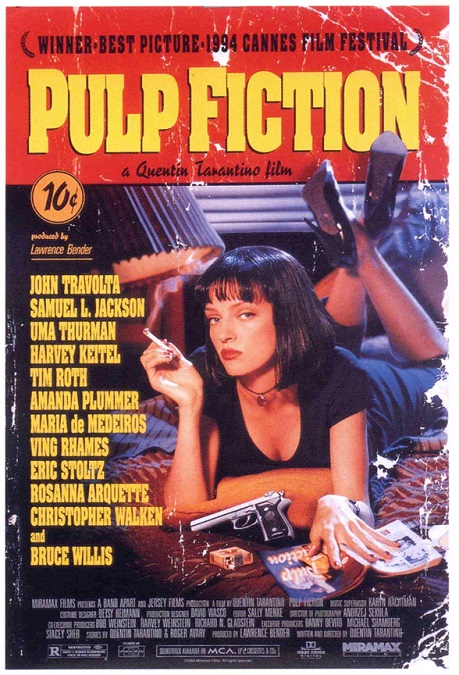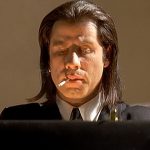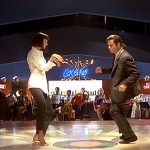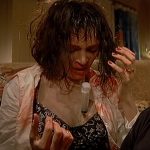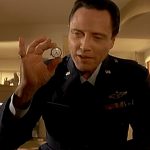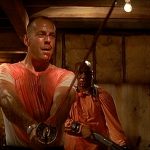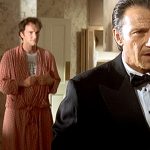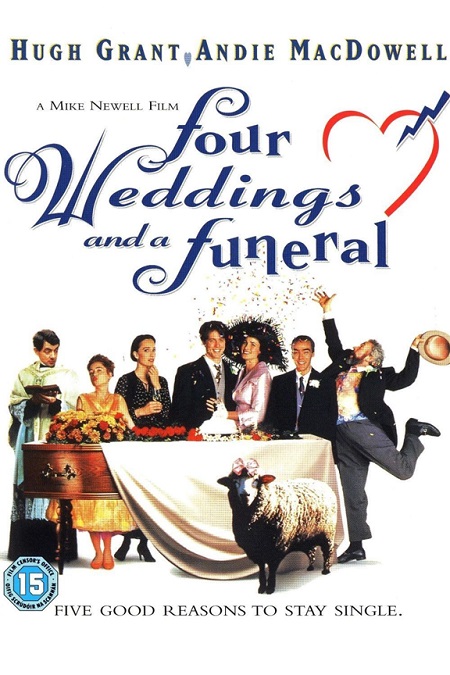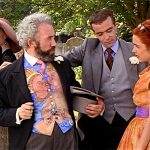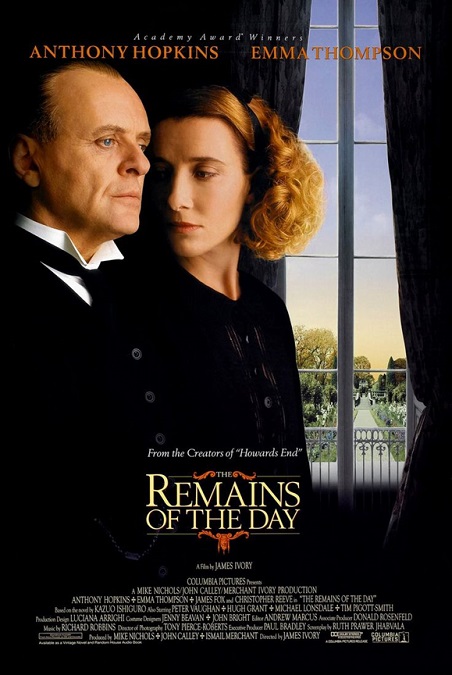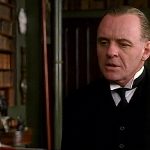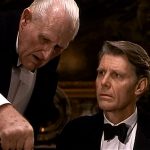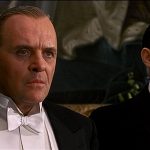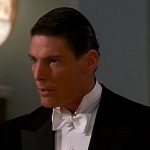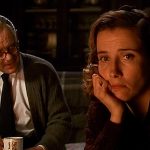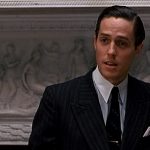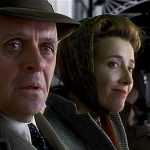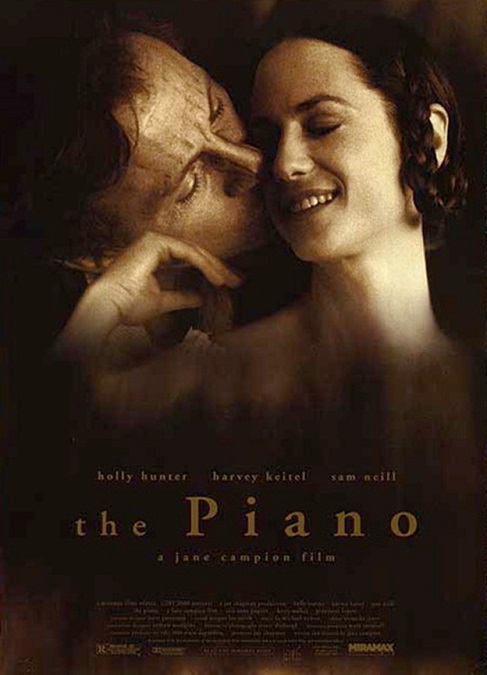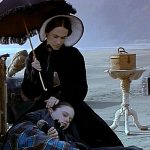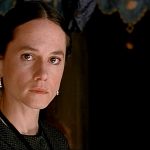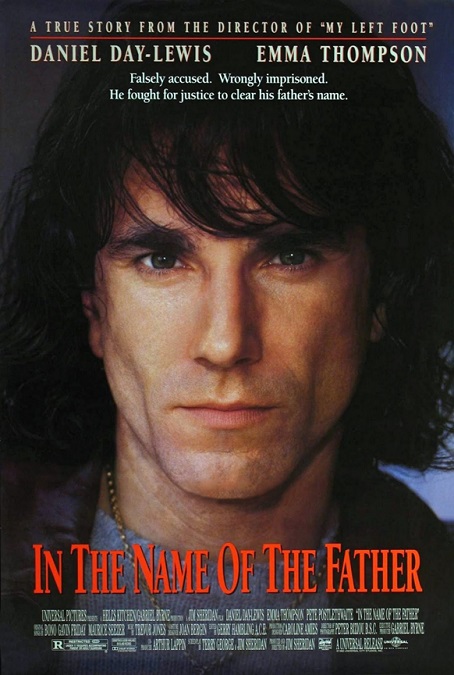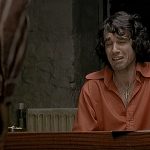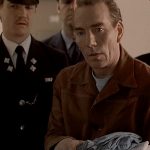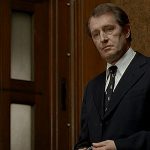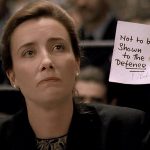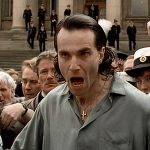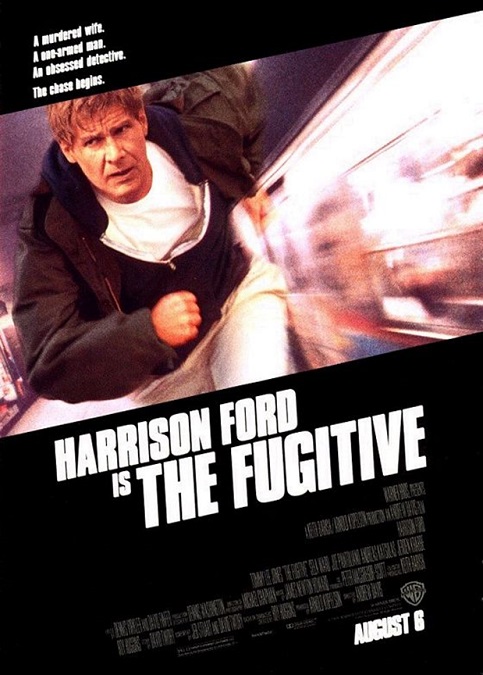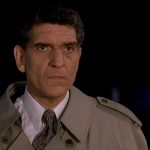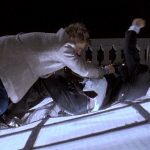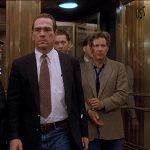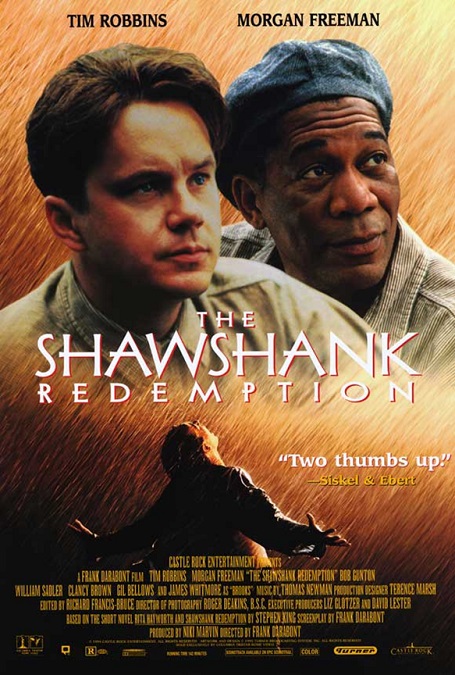
The Shawshank Redemption – 1994
This is going to be a difficult review for me to write because it is one of my top 5 favorite movies of all time. In my mind it is one of the greatest movies ever made. It has so many deep and profound themes in it that are explored in extremely powerful ways. We are shown the cruelty of evil men, despair, hopelessness, the struggle to hold on to your humanity when faced with inhuman conditions, incredible friendship, and above all, hope in the face of adversity.
The movie follows the character of Andy Dufresne, wonderfully played by Tim Robbins, who is sentenced to life in prison for the murder of his wife and her lover. We see how the Shawshank Prison’s Warden, Samuel Norton, expertly played by Bob Gunton, cruelly allows his chief guard, Captain Byron Hadley, perfectly played by Clancy Brown, to routinely beat the inmates, sometimes to death, as a means of maintaining powerful control over them. While in prison, Andy meets and befriends a fellow inmate named Red, superbly played by Morgan Freeman.
Most of the story is told from Red’s perspective. Throughout the entire movie, he actually provides narration from a 1st person perspective. He comments on the significant events surrounding Andy’s incarceration and his feelings about his deep friendship with him. They spend almost 20 years together as inmates. At first Red doesn’t believe in Andy’s innocence. But eventually, when Gil Bellows arrives, playing the pivotal role of Tommy Williams, he learns the truth, that Andy had been wrongfully convicted and had spent all those years serving a sentence that he should never deserved, their friendship deepens even further. Unfortunately, Tommy is murdered by Warden Norton and Officer Hadley for his knowledge.
There are 3 main things that make the movie so profoundly good. First, director Frank Darabont really took his time fleshing out the characters. We really got to know Andy and Red, and even some of the other inmates like Heywood, played by William Sadler, or Brooks Hatlen, played by James Whitmore, or even the prison rapist who regularly beat and raped Andy during his first two years in Shawshank, played by Mark Rolston. And the acting was so good and realistic that we really get to know and feel for them. We see Andy’s life cast him to the depths of hell, and we know that it is a phenomenal tragedy.
The second thing is that we see how Andy, through the pureness of his spirit and the knowledge of his own innocence, brings light into the dark and despairing world of lifetime imprisonment. Brooks, who is released after serving a 50 year sentence, an old man who is afraid of the outside world, commits suicide. In response, Red says, “These walls are funny. First you hate them. Then you get used to them. Enough time goes by, you come to depend on them. That’s institutionalized.” Even Red begins to lose any hope for his own future. But Andy doesn’t, despite being treated as a glorified lap dog to Warden Norton. As it turns out, Andy is incredibly smart, smart enough to run Norton’s money laundering schemes.
And that leads me to the third thing that made this movie so great. The incredibly satisfying ending. Andy outsmarted them all by successfully escaping from Shawshank Prison. He got away with a huge chunk of Norton’s laundered money, evidence of the illegal activities and murders. As Andy gets away and goes to Mexico, Hadley gets arrested, and we can only assume that he will be put in prison with the inmates he has spent years abusing, and Warden Norton commits suicide rather than allowing himself to be arrested. Movies in which the really evil characters get their well-deserved punishments are always satisfying to watch. That, and the final sequence of the film in which Red eventually gets out of prison and is reunited with his friend in Mexico. Every time I watch it, I’m in tears.
And I have to give special props to the awesome acting skills of the entire cast. Freeman was the real stand-out, of course. He was phenomenal. The voice-over work for the narration was so beautifully and sensitively delivered that it was like poetry. It was like it came from the true heart of the character he was playing. Critics sometimes say that if the film had any problems, it was Robins’ acting. They say that he had trouble making us believe his character or that he didn’t really connect to the audience. But I completely disagree. His character was a deeply introspective and private man. It was even stated that he had a problem displaying emotion. Robbins played it perfectly. And I have to give special props to Clancy Brown’s portrayal of the violent and sadistic character of Officer Hadley. From the first moment he is on the screen, you are just afraid of him. Incredible acting.
I’ll say it again. In my opinion, this is one of the greatest movies ever made. It was nominated for 7 Academy Awards, and tragically won none. In addition to Best Picture, it was nominated for Best Actor for Freeman, Best Adapted Screenplay, as it was based on a short story by Stephen King, Best Cinematography, Best Editing, Best Original Score, and Best Sound Mixing. And it lost the Best Picture Oscar to Forest Gump. There’s no denying that Gump was good, but the Shawshank Redemption got robbed and should have won the Best Picture Award.
